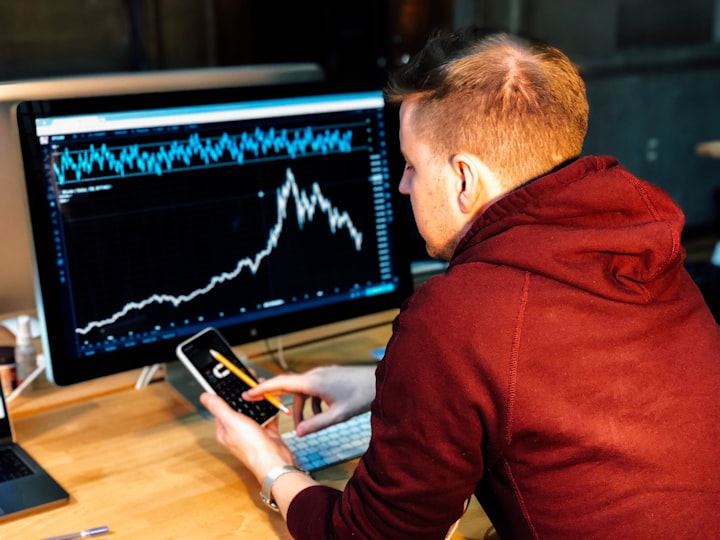AI Pharma Deals: GSK and AI Startups
AI Drug Discovery

GlaxoSmithKline (GSK) and AI/ML data-driven drug discovery 🤖
Over the last seven years, there has been an increase in data digitalisation in the pharmaceutical sector and that motivates the use of AI, that can handle large volumes of data with enhanced automation.
The different applications of AI in drug discovery and development are in drug discovery (design and screening), clinical trial design and monitoring, product development (monitoring), product management (market analysis, positioting and costing), QA and QC, and pharmaceutical manufacturing.
In particular, AI can be used effectively in different parts of drug discovery such as drug design, chemical synthesis, drug screening, polypharmacology and drug repurposing, promoting in this way a universal shift towards a data-centric drug discovery.
For this reaosn, Kim Branson the senior vice president and global head of the AI/ML group of GlaxoSmithKline (GSK), is building right now a strong team in AI/ML for GSK. The AI/ML team—about 45 people and growing—is based in Heidelberg, London, San Francisco, Boston and Philadelphia, and all team members have a strong AI/ML background and expertise in imaging or sequencing. They operate as a research group and post resources on arXiv and publish results in peer-reviewed journals.
"If you’re interested in the intersection where engineering meets biology, deep learning, and functional genomics data, this is a unique place to be". – Kim Branson, senior vice president and global head of the AI/ML group GSK
Their main work is to integrate functional genomics, proteomics and transcriptomics data from large industrial-scale experiments to build new models (structured, quantitative data). Plus they have unstructured data, such as notes and reports, for which the AI/ML team is building also natural language models.
Moreover in 2020, GSK opened a £10m💵 research hub in King’s Cross, London to leverage AI for the discovery of new drugs to treat cancer and other diseases. The aim is to partner with other companies using AI for the drug discovery process, such as analysis of genes that could cause disease and screening for potential drugs.
Additionally in 2020, it was announced that through a new partnership with GSK, AstraZeneca and the U.K.’s National Health Service, the chip maker Nvidia plans to build Great Britain’s most powerful supercomputer dedicated to AI research in healthcare. The machine is designed to deliver 400 petaflops of performance (flops are units of measure for the numerical computing performance of a computer) or 400 quadrillion floating-point calculations per second.
To make you understand the power of this machine, 1 petaflop (PFLOPS) computer system is capable of performing one quadrillion (10^15) floating-point operations per second. To match what a 1 PFLOPS computer system can do in just one second, you'd have to perform one calculation every second for 31,688,765 years. Multiple that per 400...
So, when this machine (Cambridge-1) will perform simulations of molecular models and chemical interactions among potential drug compounds it is expected to provide 8 petaflops of supercomputing power, ranking it number 29 on the list of the world’s fastest.
In 2019, GSK announced also a collaboration focused on applying AI to syntetic chemistry with the Universities of Strathclyde and Nottingham in UK ("New partnership to accelerate drug discovery"), with researchers applying cutting edge AI and ML technologies to the efficient identification of next generation medicines.
Moreover, GSK announced in 2019 to be a memebr of the project MELLODDY (Machine Learning Ledger Orchestration for Drug Discovery), which will train machine learning models on datasets from multiple partners while ensuring the privacy of each partner using federated learning. "MELLODDY | IMI Innovative Medicines Initiative"

And of course is worth mentioning that GSK was the first pharmaceutical company in 2017 to participate in the "Accelerating Therapeutics for Opportunities in Medicine (ATOM) Consortium" (a public-private consortium that aims to cut preclinical cancer drug discovery from six years to just one), by leveraging AI. For, this project GSK gave ATOM chemical and in vitro biological data for more than 2 million compounds it has screened. In March 2021, the U.S. Department of Energy’s Argonne, Brookhaven and Oak Ridge National Laboratories joined the ATOM Consortium to further develop ATOM’s AI driven drug discovery platform.
Finally, let's see now GSK's partnerships with AI drug discovery startups:
🖊🖥💊 In 2019, Oxford, UK-based Exscientia said that it had delivered the first drug candidate to be found using its AI collaboration with GSK (through application of its Centaur Chemist AI-driven automated drug discovery platform), a potential therapy for chronic obstructive pulmonary disorder, or COPD. The partnership between GSK and Exscientia dates back to July 2017.
“With the productivity improvements we are now seeing, we believe that our Centaur Chemist approach is proving itself to be the industry’s leading AI drug-discovery platform by achieving far superior results to what conventional discovery techniques have historically delivered.” – Andy Bell, Exscientia’s chief research officer
Exscientia Ltd 🚀(Oxford UK, 2012) is the first company to automate drug design and its knowledge-driven systems (Centaur AI, as well as AI Pharmatech platforms) design millions of novel, project-specific compounds and pre-assess each for predicted potency, selectivity, ADME and other key criteria. From this, a selection of the best, information-rich compounds are selected for synthesis and assay. In March 2021, Exscientia announced it has raised $100 million💵 in a Series C financing round (a total of $147.9M💵), by BlackRock, as well as existing investors, including Evotec, Bristol Myers Squibb and Novo Holdings, the last of which led the first Series C. Exscientia has acquired Kinetic Discovery Ltd. on Nov 15, 2018, a company that offers drug discovery services as hit identification, confirmation and validation.
🖊🖥💊 In 2018, Cloud Pharmaceuticals, Inc. announced they have entered into drug discovery collaboration with GSK. Cloud will use its proprietary AI-driven process to design novel small-molecule agents to GSK specified targets.
“Application of Cloud Pharmaceuticals technology has been proven to dramatically shorten the time from target validation to lead molecule. We believe this agreement validates the strength of this process and reinforces the value we can offer accelerate the discovery of novel, high-quality drug candidates.” – Ed Addison, CEO of Cloud Pharmaceuticals
Cloud Pharmaceuticals 🚀 (Utah US, 2013) combines experimental biology, automation, and AI in a massively parallel system to quickly and efficiently identify treatments for any disease, which can be modeled at the cellular level. At Recursion’s headquarters, clusters of robots treat millions of cells per week with drugs, stain them with six dyes, and then take pictures/images to capture and quantify as many morphological features as they can. By pushing these data through a ML pipeline, they hope to find relationships that are invisible to the human eye and to tease out clusters of effects that can guide their drug discovery efforts. The company launched in 2011 with a technology license from Duke University, and has since expanded through early stage funding arrangements from Microsoft, the National Science Foundation and the University of Florida via its Gatorade royalty fund, and has established collaborations with Glaxosmithkline (“GSK”) and Fujitsu. Cloud Pharmaceuticals has raised a total of $1.8M💵 in funding over 4 rounds and has a post-money valuation in the range of $1M to $10M💵 as of Jul 25, 2014.
🖊🖥💊 In 2020, Insilico Medicine launched a preclinical research program focused on finding new treatments for brain cancer, and has brought on the former global program head of GSK’s computer-aided drug discovery unit to help run it.
“Brain cancers are the worst diseases anyone can ever get and the most rare cancers are often overlooked because the efforts are expensive, the market is small, and the probability of failure is high. We will try to change this with our AI-powered drug discovery pipeline.” – Insilico co-founder and CEO Alex Zhavoronkov
Insilico Medicine 🚀 (Rockville, MD USA, 2014) is an AI company that pioneered the applications of the generative adversarial networks (GANs), reinforcement learning, transfer learning and meta-learning for generation of novel molecular structures for the diseases with known and unknown targets, and unlike the other companies in the field is developing the end-to-end pipeline covering every step of drug discovery, clinical trials analysis and digital medicine. On Sept 2019, they announced they had developed GENTRL, an AI system that was able to design a new molecule in 21 days (cost $150,000💵) and complete the test in vitro from step 1 (target nomination) in 46 days (vs 2–3 years in the “traditional” process). So far, they developed more than 60 different AIs and advanced bioinformatic engines for target discovery. For example PandaOmics is one of them, and it has many scores that use “omics” human data to identify novel targets that were not previously linked to a disease. The Hong Kong-based Insilico Medicine is expected to start clinical trials before the end of the 2021 for a drug that was discovered by its AI system. Insilico Medicine has raised a total of $51.3M💵 in funding over 8 rounds and has a post-money valuation in the range of $100M to $500M💵 as of Sep 13, 2019.
🖊🖥💊 In 2017, Insilico Biotechnology AG and GSK announced a strategic collaboration that will combine Insilico's leading technology for bioprocess simulation with GSK Vaccine's outstanding expertise and innovation in bioprocess development.
Insilico Biotechnology AG 🚀 (Stuttgart, Germany, 2001) is a market-leading company providing predictive solutions for the bioeconomy. They offer mechanistic models, customised software and a high performance computing platform for the simulation of living cells. They use data from their customer‘s bioprocess to generate a model that represents the customer‘s host organism, and they simulate how cells behave in a bioprocess to identify the best conditions. In 2020, they released the Insilico Designer that uses a virtual bioprocess model, the Insilico Digital Twin, to design the minimum number of experiments required to achieve a desired predictive accuracy. The predictive power is achieved by exploiting process data using AI and biochemical networks. Last Funding Round: $342K💵 Grant (prize money), Jul 19, 2007.
Thank you for reading 👓💙
And if you liked this post why not share it?
#science #health #pharma #drugdiscovery #drugdevelopment #AI
💻💊🔬💉📊🤖
👉🏻References
43 Pharma Companies Using Artificial Intelligence in Drug Discovery
AI-biotech startups: top five major deals
Key AI players in the drug discovery market






Comments (1)
Thanks for sharing.